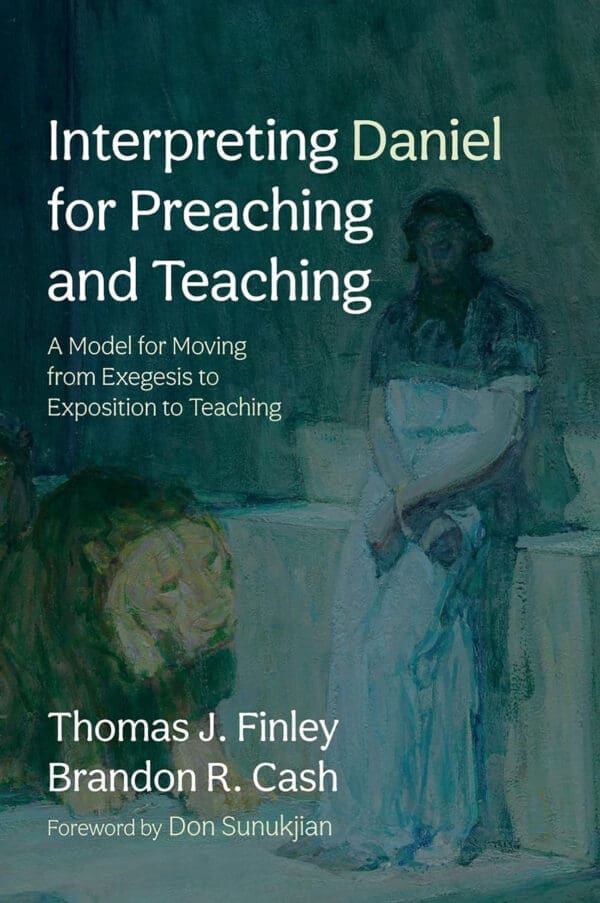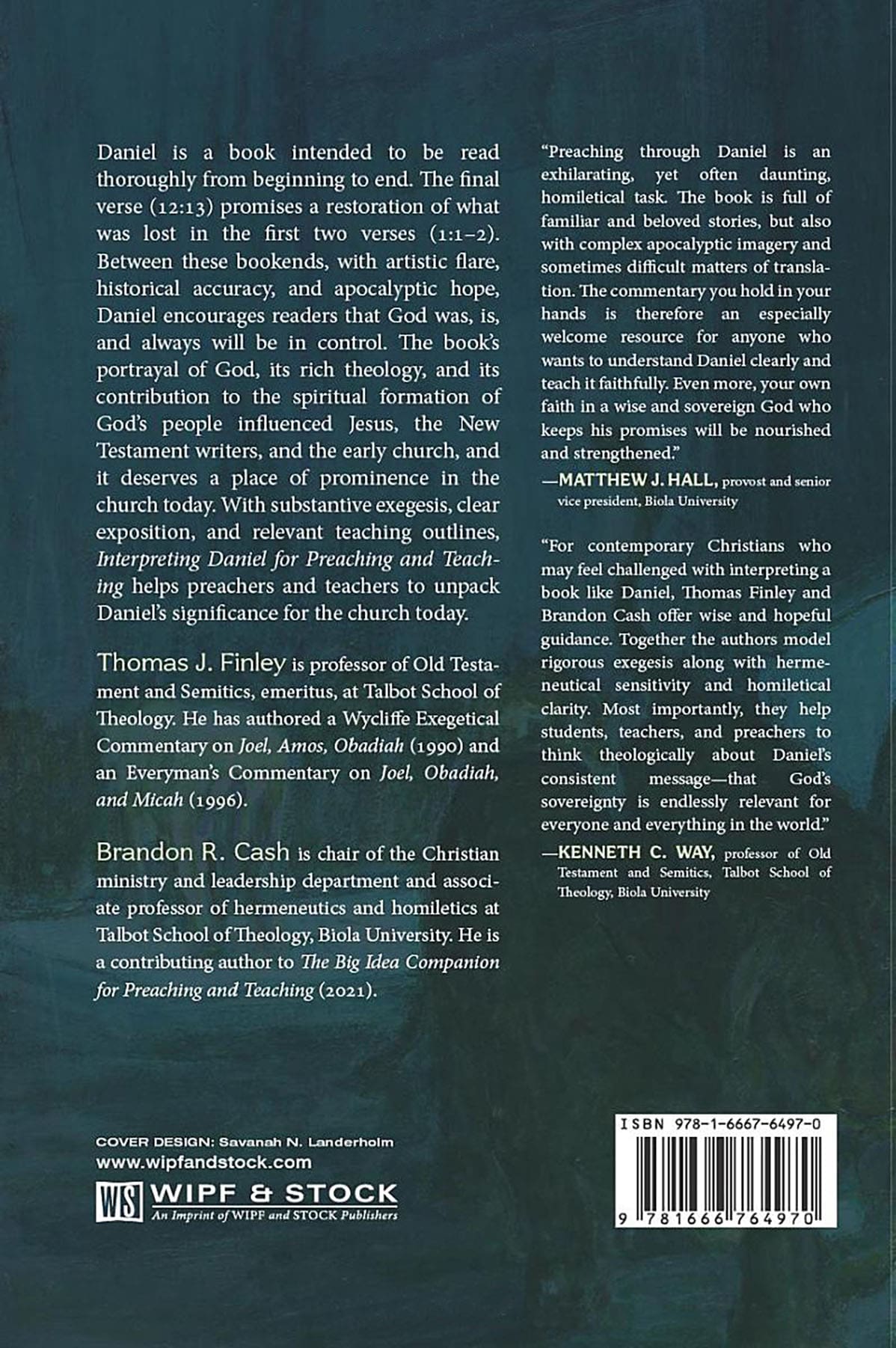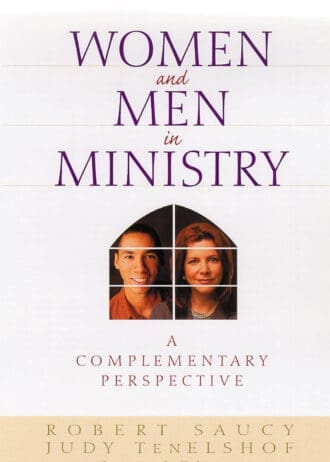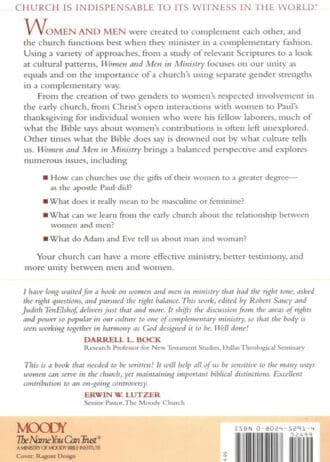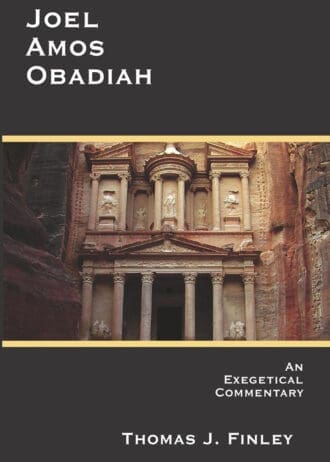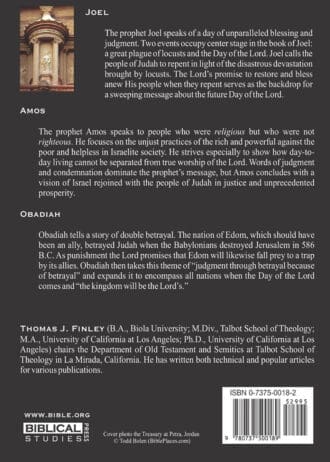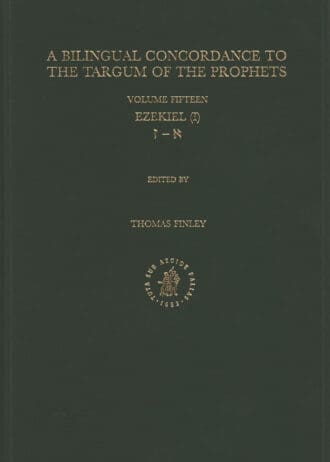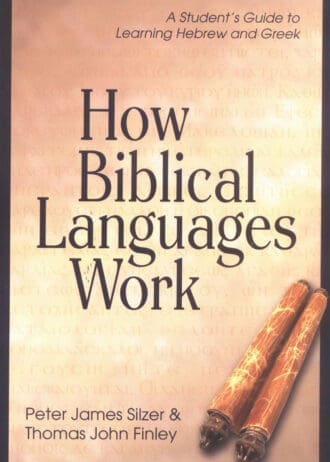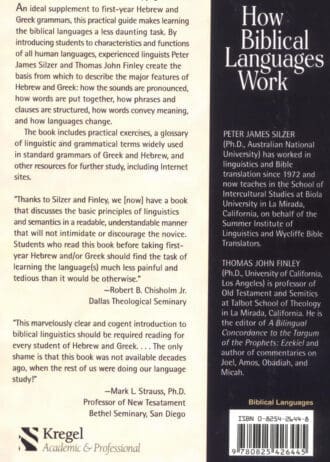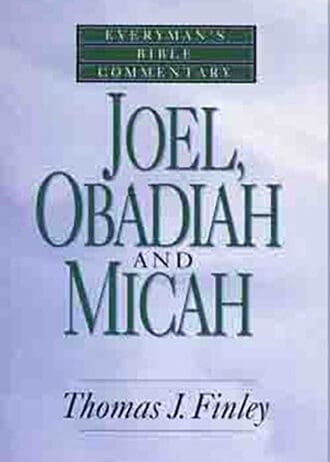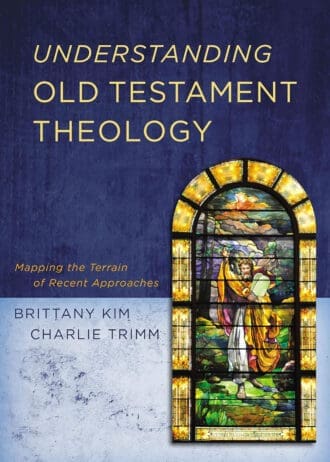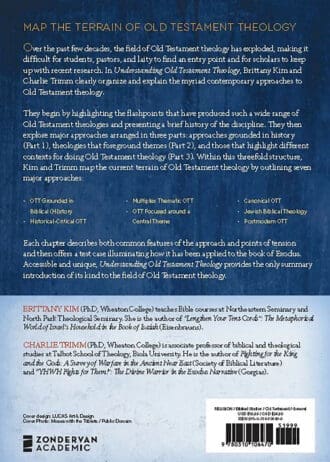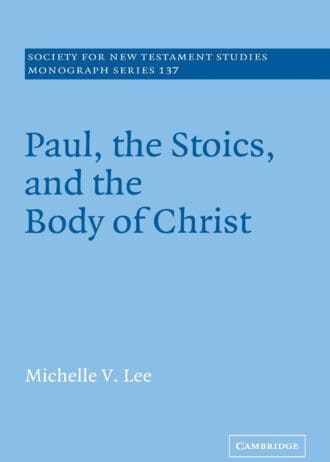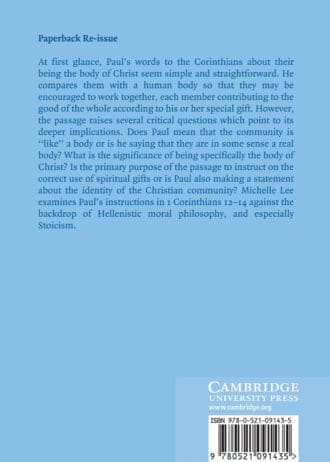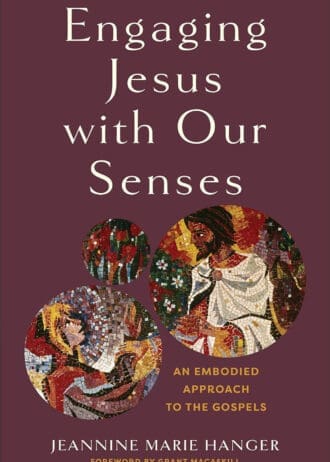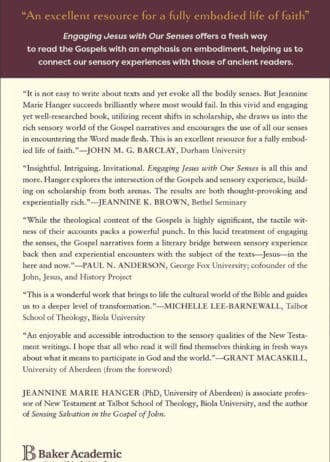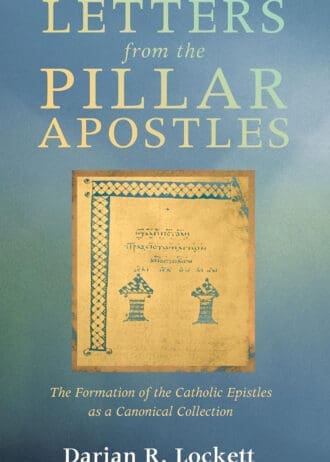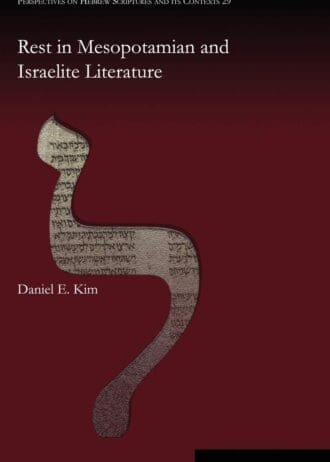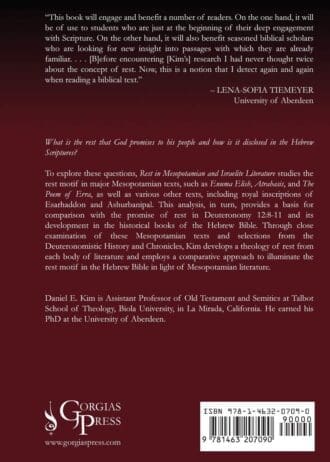Daniel is a book intended to be read thoroughly from beginning to end. The final verse (12:13) promises a restoration of what was lost in the first two verses (1:1–2). Between these bookends, with artistic flare, historical accuracy, and apocalyptic hope, Daniel encourages readers that God was, is, and always will be in control. The book’s portrayal of God, its rich theology, and its contribution to the spiritual formation of God’s people influenced Jesus, the New Testament writers, and the early church, and it deserves a place of prominence in the church today. With substantive exegesis, clear exposition, and relevant teaching outlines, Interpreting Daniel for Preaching and Teaching helps preachers and teachers to unpack Daniel’s significance for the church today.
Book Insights from Tom Finley
Few Old Testament books influenced the teachings of Jesus and the writers of the New Testament as did Daniel. Not only are there significant and specific prophecies concerning the future, but the book of Daniel also serves as a scenic set design for the performances of Jesus’s. When Jesus mentions “the abomination that causes desolation,” the book of Daniel is the scenic setting that adds force to Jesus’s words. When Jesus identifies himself as the “son of man,” they book of Daniel is the stage set containing thrones in the background that remind the audience that Jesus will soon be seated by the “Ancient of Days” (Dan. 7:13). The book of Daniel is much more than an ancient book or a mystery to be solved. It is a portrait of our sovereign God, the scenic stage set for the leading performance of Jesus, and an invitation to all of God’s people to be wise so they will “shine like the brightness of the sky, and those who lead many to righteousness, like the stars forever and ever” (Dan. 12:3).
Our goal for this book is threefold. First, we want to help the preacher to understand the meaning of the book of Daniel. Second, we want to show preachers how to move from the interpretation of a text to the preaching of a text. And third, we want this book to serve as a model for the interpretation and teaching of other biblical books.
Editorial Reviews
Preaching through Daniel is an exhilarating, yet often daunting, homiletical task. The book is full of familiar and beloved stories, but also with complex apocalyptic imagery and sometimes difficult matters of translation. The commentary you hold in your hands is therefore an especially welcome resource for anyone who wants to understand Daniel clearly and teach it faithfully. Even more, your own faith in a wise and sovereign God who keeps his promises will be nourished and strengthened.
Matthew J. Hall, provost and senior vice president, Biola University
For contemporary Christians who may feel challenged with interpreting a book like Daniel, Thomas Finley and Brandon Cash offer wise and hopeful guidance. Together the authors model rigorous exegesis along with hermeneutical sensitivity and homiletical clarity. Most importantly, they help students, teachers, and preachers to think theologically about Daniel’s consistent message–that God’s sovereignty is endlessly relevant for everyone and everything in the world.
Kenneth C. Way, professor of Old Testament and Semitics, Talbot School of Theology, Biola University

